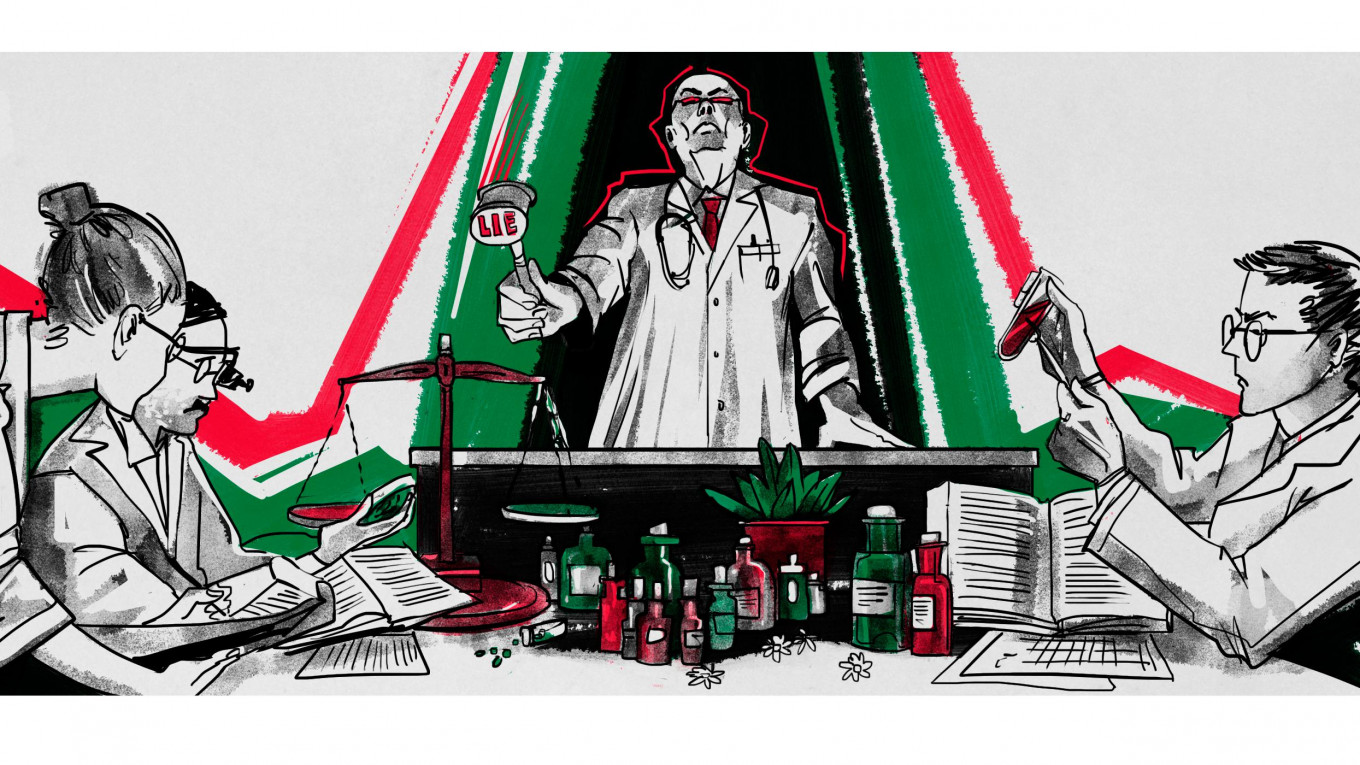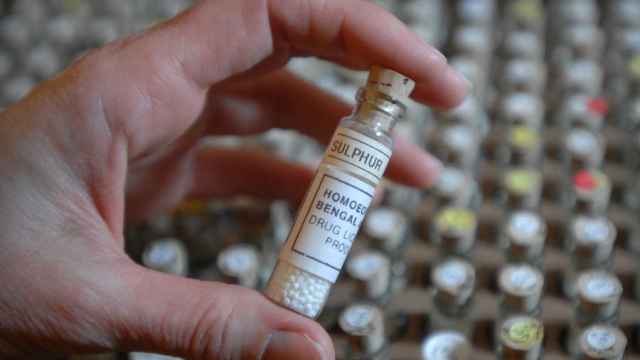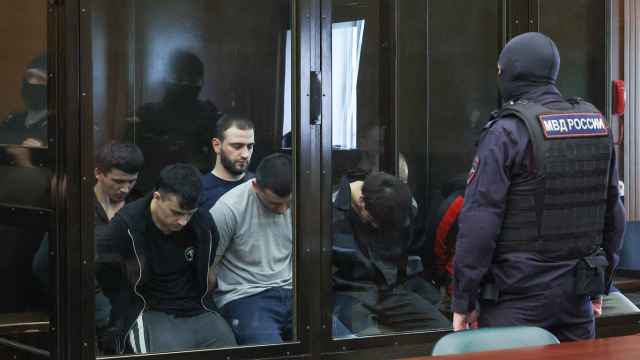The stories homeopathy fanatics tell are usually similar.
“My two-year-old son was struggling with severe bronchitis for almost a year. I couldn’t look at him being tortured with injections, IVs, catheters,” says Olesya. “Then a friend recommended a homeopath and a miracle happened. The little round pills he prescribed cured my boy. We never went back to the hospital. And I threw away all the regular medications I had at home.”
Olga, another believer, tested the “magic white grains” herself. “Five rounds of antibiotics did nothing for my cystitis, but five grains of homeopathic medicine made me forget about it almost immediately,” she says. “I’ve been avoiding regular doctors at all costs ever since.”
There is no reliable data on just how many Russians actually trust homeopathy, but some estimates suggest the number may reach into the millions. Russia’s most popular social network Vkontakte has dozens of communities devoted to homeopathy. According to the National Homeopathy Council NGO, 28 pharmaceutical companies in Russia produce homeopathic medicines. In 2016, pharmacies across Russia sold 21.8 million packs of homeopathic medicines, making the market worth 7.32 billion rubles ($123 million).
But scientists from the Russian Academy of Sciences (RAS) warn that the fad poses dangers. Patients who reject standard medicine in favor of unproven homeopathic cures put their lives at risk, they wrote in their latest memorandum. “The principles of homeopathy contradict known chemical, physical and biological laws, while there are no persuasive scientific trials proving its effectiveness,” the RAS commission on pseudoscience said in a document released in December.
A New Dawn, A New Cure
German physician Samuel Hahnemann popularized the practice of homeopathic medicine in 1796. Six years earlier, a perfectly healthy Hahnemann consumed cinchona bark — a substance used to treat malaria. He soon started to experience symptoms of malaria. The experiment led him to believe that substances that cause the symptoms of a disease in healthy people could cure similar symptoms in sick people.
Medications used in homeopathy include these substances, diluted in distilled water or alcohol multiple times, and often well past the point where molecules of the original substance could remain in the medication. Scientists all over the world argue that this medication can only have one effect on patients — the placebo effect.
Russia’s Health Ministry legalized the use of homeopathy in “practical medicine” in 1995, four years after the collapse of the Soviet Union. During Soviet times, homeopathy wasn’t banned, but it was heavily criticized, and healthcare officials publicly warned patients about its dubious effects, says Alexander Sergeyev, a member of the RAS commission on pseudoscience.
“When the Soviet system collapsed, people opened up to things the Communists frowned upon,” Sergeyev told The Moscow Times. “Like dissidents and UFOs, homeopathy received a new lease of life, and homeopathy supporters used the energy to infiltrate the healthcare system.”
According to Sergeyev, homeopathy now constitutes 1.5 percent of the Russian pharmaceutical market — “It is not something marginal anymore, and that’s why we must take action.”
Opinion polls support Sergeyev’s concerns. Almost half of Russians — 46 percent — told the Public Opinion Foundation pollster in 2015 that they prefer self-treatment. A similar poll conducted by the state-run pollster VTsIOM in 2015 showed that at least 21 percent of respondents don’t trust regular doctors, describing them as “inefficient,” “negligent” and “incompetent.”
Government Intervention
The RAS commission on pseudoscience is petitioning Russia’s Ministry of Health to abandon the use of homeopathic medicine in state hospitals. The commission called on pharmacies to remove homeopathic cures from shelves that contain actual medicine. Finally, the commission has urged Russia’s Federal Anti-Monopoly Service to limit advertising of homeopathic medicines.
The commission does not aim to ban homeopathy entirely, Sergeyev insists: “It has the right to exist, why not? But the government shouldn’t promote it, just it like it doesn’t promote alcohol or smoking.”
Government officials have cautiously backed the commission’s findings. The Health Ministry promised to create a special working group to discuss ways of regulating homeopathy, but has yet to make any statement that identifies its position on the issue. Representatives of the homeopathic community meanwhile said they still they enjoyed a healthy dialogue with government.
“People have been attacking homeopathy for the past 200 years. But it is still there, isn’t it?” Alexei Karpeyev, head of the National Homeopathy Council, told The Moscow Times.
Sergeyev believes reversing the situation is difficult, but not impossible. Officials will find it hard to admit they were wrong 20 years ago, he says, when they allowed homeopathy into the healthcare system. At the same time, the memorandum gives them a good excuse to conduct new studies and do the right thing, the expert says.
In the meantime, the magic, cure-all pills will remain available in pharmacies across the country.
A Message from The Moscow Times:
Dear readers,
We are facing unprecedented challenges. Russia's Prosecutor General's Office has designated The Moscow Times as an "undesirable" organization, criminalizing our work and putting our staff at risk of prosecution. This follows our earlier unjust labeling as a "foreign agent."
These actions are direct attempts to silence independent journalism in Russia. The authorities claim our work "discredits the decisions of the Russian leadership." We see things differently: we strive to provide accurate, unbiased reporting on Russia.
We, the journalists of The Moscow Times, refuse to be silenced. But to continue our work, we need your help.
Your support, no matter how small, makes a world of difference. If you can, please support us monthly starting from just $2. It's quick to set up, and every contribution makes a significant impact.
By supporting The Moscow Times, you're defending open, independent journalism in the face of repression. Thank you for standing with us.
Remind me later.






